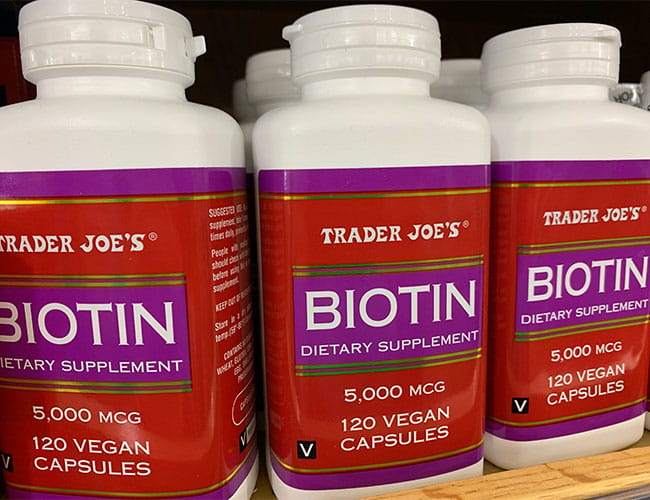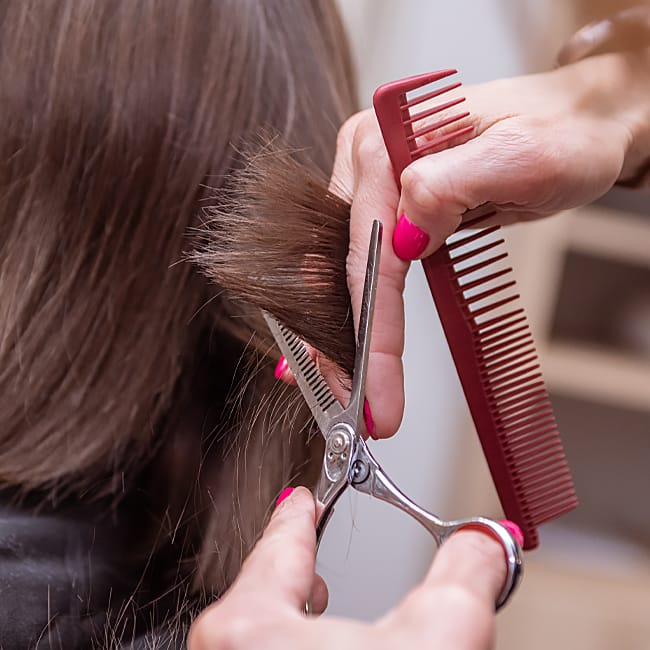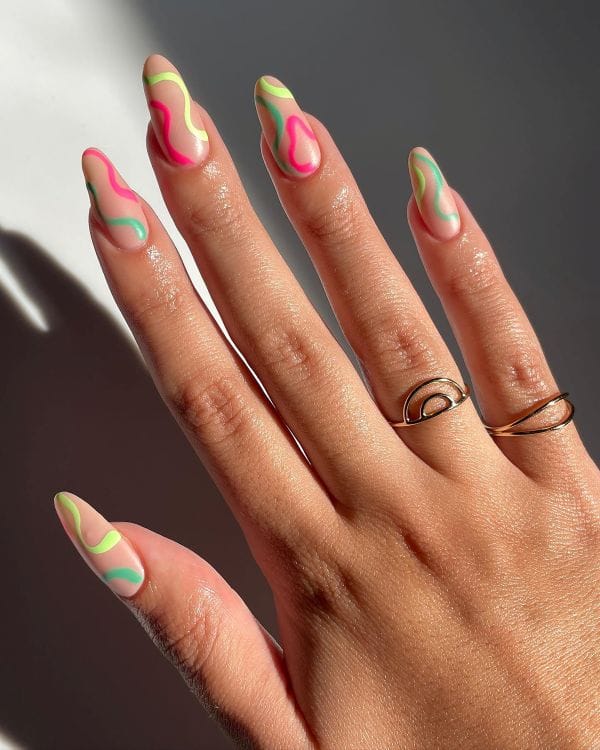This post has been updated since it was originally published on April 26, 2022 to include more expert insight.
Thinning hair is one common beauty issue that can cause a serious blow to your confidence. Luckily, there are lots of prevention methods that can help stop the problem at the source, and regrowth is always possible.
There are many reasons you may be experiencing thinning hair, from aging to hormones. It’s important to note that the best way to solve the issue at hand is to figure out what’s causing it. In many cases, the cause of thinning hair lies in a nutrient deficiency, which is why certain supplements can be so beneficial to hair growth.
Diet is a vital component of hair health, so ensuring your body is receiving proper nutrients through supplements is one major key to combatting thinning hair. “The link between healthy hair and our diet is stronger than we often realize and by making a few changes hair loss prevention and even reversal can be achieved,” says dietitian Trista Best from Balance One Supplements.
To learn more about the most important nutrients for hair growth and the best supplements to take to combat thinning hair over 50, we spoke to Best, along with Trichologist Tiffany Young, CEO of ThinHairThick, and hair expert Ghanima Abdullah from The Right Hairstyles. These experts all pointed us towards 3 common, hair-health-promoting supplements: Biotin, collagen and pumpkin seed oil.


Biotin
There are tons of supplements out there that can help promote hair growth, and the best one for you will depend on the exact nutrients that may be lacking in your diet. However, experts agree that biotin is generally a great place to start.
"Biotin is considered a hair growth supplement," Abdullah says. She notes that one of the biggest benefits of Biotin is the fact that it stimulates circulation within the scalp, which means your body is better able to supply all of those nutrients it needs to grow healthy hair. "The main reason for this is that it increases circulation in the area of the scalp, which leads to more hair growth because there is more nutrition in the scalp," she explains.
Young notes that not only is biotin a common ingredient in skin care supplements, but it's also a popular addition to shampoos. "It's efficacy is well-known in the hair industry and you will see it infused in shampoos," she says. "It works by plumping up the cuticle layer."
Additionally, Young says adding more biotin to your diet can lead to more keratin production, which has been proven to stimulate hair growth and prevent hair loss.

Young gives one word of caution when it comes to biotin supplements, which is to follow proper dosage guidelines, especially if you want to avoid running into acne as a side effect. "Acne is a fairly common side effect, but should subside after the initial introduction phase," she assures.
Of course, it's also possible to increase your biotin intake without a supplement; if you want to add more biotin to your diet by way of healthy foods, consider eating more eggs, avocados, seeds, nuts, and vegetables like sweet potatoes. However, taking a biotin supplement every day is a simple way to combat hair loss and promote healthy growth from your scalp—it's one thing experts can agree on!

Collagen
The amino acids from collagen that the body naturally produces are the building blocks of keratin, which Abdullah says lends strength to hair and nails. Collagen also keeps the skin supple and youthful. Unfortunately, she adds, collagen in the body "starts to break down between 18-20 years of age and continues declining from there."
Regarding women over 50, Abdullah notes that collagen "will handle general issues with dryness of the nails and hair and premature aging of the skin, so most people can benefit from it." Keratin, which she says is built from the amino acids in collagen, is the primary protein in hair. So, Abdullah stresses, "collagen can give your body the building blocks it needs to produce more hair."
With age, the hair starts to thin. This, she continues, is "due to the fact that each year after the prime of life, say 20 years of age, the collagen levels in the body decrease." Incidentally, collagen is what allows our skin cells— including in the scalp— to remain flexible. "Once the skin cells in the scalp start losing collagen and flexibility, they are no longer able to produce the same quality hair," Abdullah points out.

In some cases, the hair actually falls out because the hair follicles are inflexible and cannot hold onto it. This is one of the reasons hair thins with age. Collagen, she emphasizes, "also improves the elasticity of the hair." Marine collagen, in particular, is a powerful antioxidant. "It helps fight free radical damage in the hair follicles which can prevent various forms of alopecia," she adds. The hydrolyzed form of collagen is "easy to digest," according to Abdullah, and many people add it to their morning coffee.
Apart from the other potential benefits from taking collagen, it also "might help stop the greying of hair," as its antioxidant properties help stop the attack of free radicals on melanin in the hair follicles," Abdullah says. Melanin produces hair color.

Pumpkin Seed Oil
While Biotin and collagen are often known as the most tried-and-true supplements when it comes to hair health over 50, Abdullah also suggests a more underrated option; pumpkin seed oil.
"Pumpkin seed oil is also worth it as a supplement ingredient, or even all by itself," she recommends. "It's been scientifically proven to grow more hair and aid those who have thinning hair," she says. The more you know!


























